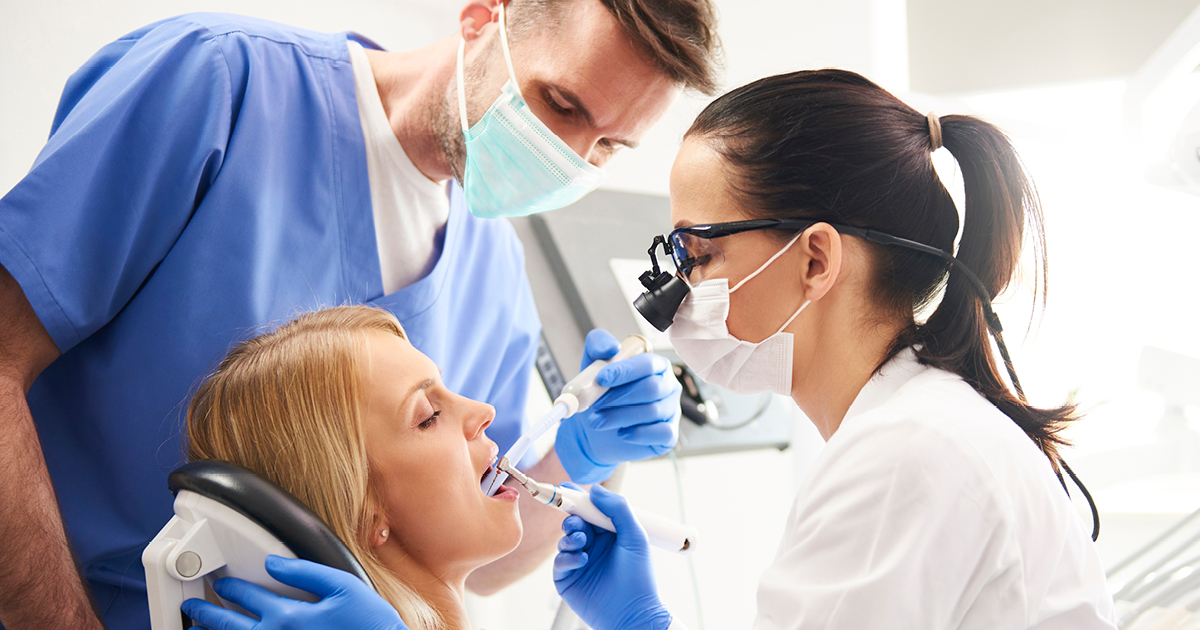Legislation signed into law Sept. 22 will implement numerous provisions sought by CDA to address dental licensure, office staffing and other issues impacting dentists in California.
This year, the Dental Board of California underwent a regular “sunset review” process, an evaluation of whether licensing boards operate efficiently and to implement appropriate changes to board operations or the profession’s practice act. CDA worked collaboratively with the author of this year’s sunset review legislation, Sen. Angelique Ashby (D-Sacramento), to move forward on a number of priority issues to benefit the dental profession.
“The wins in this bill are the result of multiple years of CDA advocacy to address dental office staffing challenges by increasing the number of registered dental assistants through new and streamlined pathways,” said CDA President Carliza Marcos, DDS. “This comprehensive bill also moves the needle on a number of other issues that will benefit dentists: providing expanded scope for unlicensed dental assistants, fixing sedation permitting issues for pediatric dentists and expanding options for mental health C.E. at a time of stress and burnout for health care providers.”
SB 1453 includes the following provisions.
Expanding RDA licensure pathways
A high priority for CDA has been addressing critical dental workforce shortages. In a significant win, SB 1453 puts new RDA training pathways in place. The bill, once signed, will establish the following beginning July 1, 2025:
- A new preceptorship pathway to shorten the timeline for on-the-job training, including 800 supervised hours, inclusive of educational and clinical experience. The current standard in board-approved RDA educational programs is 800 hours, so this will create parity between the educational program and on-the-job pathway options. The existing 15-month on-the-job training pathway will continue to exist. CDA will develop educational offerings for members to use in training their RDAs on the job.
- Allowing individuals who move to California and hold a certified dental assistant certificate from the Dental Assisting National Board (DANB) to apply for RDA licensure without having to start training at the beginning.
Updating dental assisting scope of practice
The duty statements for all dental assisting licensure categories will be modernized to account for advances in technology. Additionally, the following duties have been expanded to help address staffing challenges:
- Unlicensed dental assistants will be able to perform coronal polishing under direct supervision after successfully completing a board-approved course.
- RDAs will be able to attach buttons and add/remove orthodontic bands under direct supervision.
Correcting pediatric sedation permit qualifications
A law that took effect in 2022 unintentionally made pediatric dentists ineligible to obtain adult minimal sedation permits required to treat patients aged 13 and older. In coordination with the California Society of Pediatric Dentists, CDA advocated for a technical fix to allow pediatric dentists to be eligible for both pediatric and adult minimal sedation permits.
Expanding mental health C.E. opportunities
To help address well-being and burn out, specified mental health courses will now qualify as core C.E. for dentists. In the coming months, CDA will develop and facilitate eligible courses in support of dental team wellness.
Improving parity in out-of-state licensure processes
The bill allows out-of-state public health dentists who use their dental license to practice non-clinically to receive a California license through licensure by credential, similar to clinical practice dentists.
Changing permitting for orthodontic assistants
In partnership with the California Orthodontic Association, CDA advocated for the following changes and expansions to the Orthodontic Assistant Permit:
- Permit applications will no longer require work experience to begin an OAP course or take the OAP exam (previously 6 and 12 months, respectively).
- Permitholders will be able to prepare teeth for provisional and bonded attachments, buttons, connections, brackets and appliances under direct supervision.
- Permitholders will also be able to remove brackets and attachments under direct supervision.
The provisions in SB 1453 will take effect Jan. 1, 2025, unless otherwise stated.
Stay connected to CDA’s results-driven advocacy efforts on other major issues impacting California dentists and recent legislative efforts online, through the newsroom and the member newsletter.

